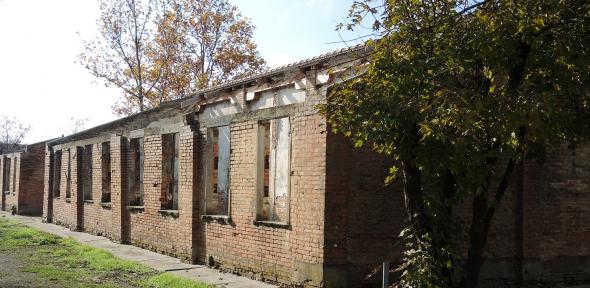Institute of Continuing Education (ICE)

Submitted by Josh Hatley on Wed, 13/02/2019 - 14:02
ICE Academic, Archaeologist Dr Gilly Carr, will be chairing a new five-year international project sponsored by the International Holocaust Remembrance Alliance (IHRA). On 1 February 2019 the project, ‘Sites at Risk: Guidelines for Best Practice' will begin as part of IHRA's commitment to countering Holocaust distortion and safeguarding the record.
Over the next five years, this project aims to create heritage guidelines for safeguarding authentic Holocaust sites - for adoption by all IHRA Member Countries - and to have these guidelines incorporated into national cultural heritage legislation.
“In 2007 the IHRA adopted a resolution on preserving and protecting sites associated with the Holocaust and the genocide of the Roma. Such sites play a crucial role in educating current and future generations about the causes of the Holocaust and help them reflect upon its consequences”, said Dr Gilly Carr, chair of the project.
“This project will identify sites at risk – such as through demolition, inappropriate reuse or threats to site integrity - and develop concrete ways of risk mitigation to safeguard the record for the future. It brings the IHRA together with international conservation NGOs to develop best practice approaches to the preservation of physical, authentic sites such as camps, mass graves and ghettos.”
The IHRA has made the preservation of sites a key focus of its work for many years, regularly calling upon IHRA Member Countries to fulfil their obligations to mark, protect and research sites.
At the IHRA Plenary Session in Prague in 2007 IHRA Member Countries adopted a resolution recognizing the extraordinary importance of researching and marking for posterity the physical locations where Holocaust-related events occurred and pledged to undertake all possible measures preserve them and prevent their misuse.
The support of IHRA Member Countries for the preservation of historic sites, sources and artefacts was underscored by the adoption of the International Memorial Museums Charter in 2012, a document addressing the ethical considerations of memorial museums in how they portray victims of the Holocaust.
Following a recommendation to the IHRA Plenary in 2015, the IHRA has been focusing its efforts on protecting and preserving Holocaust-related sites throughout its Member Countries and beyond. The IHRA has engaged with local communities to address concerns relating to Camp Komárom in Hungary, Jasenovac in Croatia, Staro Sajmiste in Serbia, Lety u Pisku in the Czech Republic and the former Vilnius ghetto library site in Lithuania.
The project group will monitor the development of these sites and visit additional sites at risk from across Europe - one for each of the five years of the project. Information and materials will be shared through online activities.
The IHRA unites governments and experts to strengthen, advance and promote Holocaust education, remembrance and research worldwide, and to uphold the commitments of the 2000 Stockholm Declaration.
Members of the project core team are: Dr Gilly Carr (UK), Dr Alicja Bialecka (Poland), Dr Heidemarie Uhl (Austria), Dr Steven Cooke (Australia), and Zoltan Toth-Heinemann (Hungary). They will be joined by a research assistant, Margaret Comer, based at the University of Cambridge with Gilly Carr.
Dr Gilly Carr will be teaching the online course Conflict Archaeology: Dark Heritage starting 15 April 2019.
Image: Fossoli concentration camp, Italy ©Dr Gilly Carr